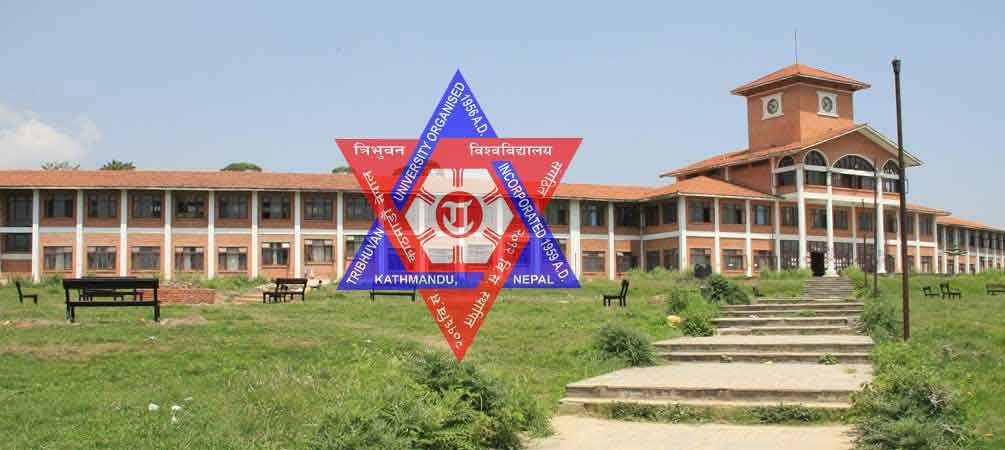
Tribhuvan University: Challenges, Exam Issues, and Potential Solutions
Tribhuvan University (TU) is struggling with serious challenges due to ongoing protests by teachers, students, and staff. Recently, TU has been unable to conduct recruitment exams for assistant professors and staff through its service commission. Consequently, it has delegated this responsibility to the Public Service Commission (PSC), marking a significant decision in its administrative history.
This move reflects a decline in TU's administrative capacity and the complex issues stemming from persistent protests and security concerns.
Impact of Protests: Examination Challenges
In 2077 BS, TU announced open recruitment for 581 assistant professor positions. However, several issues prevented the smooth conduct of written exams:
-
Partial Professors' Protests:
-
Part-time professors demanded contractual appointments and attempted to disrupt the examination process.
-
They even locked the TU Service Commission office.
-
-
Student Protests:
-
Students also staged protests, raising various demands that further complicated the examination process.
-
-
Security Issues:
-
During the examination period, security lapses forced TU to retract its decision to conduct the exams internally.
-
Delegation to the Public Service Commission (PSC)
For the first time, TU has handed over the responsibility of conducting assistant professor exams to the Public Service Commission.
Constitutional Ambiguity:
-
Article 243 of Nepal’s Constitution outlines the duties of the PSC but does not limit its authority to conduct university or teacher service commission exams.
-
However, this arrangement is a temporary solution to address TU's current challenges.
Judicial Disputes:
-
TU’s decision was contested in court, but the judiciary refused to issue an interim order, allowing the exams to proceed through the PSC.
Protests by Part-Time Professors and TU's Response
Part-time professors have been protesting for a long time, demanding job security and other benefits.
Key Demands:
-
Contractual appointments.
-
Open competition for permanent positions.
TU's Initiatives:
-
Form a task force to study the situation at campus and departmental levels.
-
Conducting feasibility studies to address the demands of the protestors.
Underlying Issues:
Many part-time professors at TU have made their protests a major administrative hurdle.
Examination Processes and New Recruitment Plans
TU has struggled to complete the written exams announced in 2077 BS.
Low Participation:
-
Only 20% of the applicants appeared in the written exams.
-
Possible reasons for low participation:
-
Migration to foreign countries.
-
Attraction to alternative employment opportunities.
-
Upcoming Recruitment:
-
TU is preparing to announce new openings for 700 assistant professor and staff positions.
-
These exams will also be conducted through the Public Service Commission.
Root Causes of TU’s Problems
-
Administrative Inefficiency:
-
TU's inability to conduct its exams highlights structural weaknesses within its service commission.
-
-
Protest-Driven Disruptions:
-
Demands and protests by teachers, students, and staff have repeatedly stalled regular operations.
-
-
Brain Drain and Job Preferences:
-
Highly educated and skilled professionals increasingly seek opportunities abroad or in other sectors, leading to low participation in TU exams.
-
Potential Solutions
To address its challenges, TU must implement long-term strategies:
-
Engage in Dialogue and Consensus Building:
-
Initiate open discussions with protesting teachers, students, and staff to resolve conflicts.
-
Provide fair opportunities for part-time professors.
-
-
Ensure Security Measures:
-
Strengthen security during examinations to prevent disruptions.
-
-
Improve Administrative Efficiency:
-
Revamp the TU Service Commission to enhance its capacity and effectiveness.
-
-
Curb Brain Drain:
-
Develop policies to retain skilled professionals in Nepal.
-
Launch incentive programs to attract talent.
-
Conclusion
Tribhuvan University is facing a critical period of administrative and protest-related challenges. However, with a positive approach and strategic planning, these issues can be resolved to improve the quality of education.
By ensuring transparency, fostering participation, and taking accountability, TU can rebuild its reputation and functionality. As Nepal's leading educational institution, TU’s revival will significantly benefit the nation’s academic landscape.
Tribhuvan University




